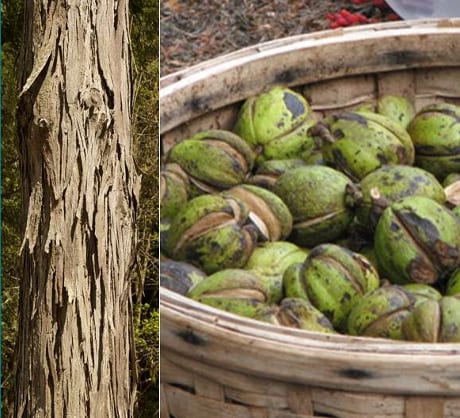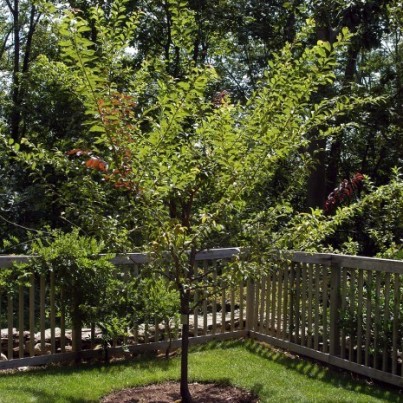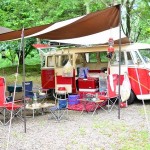wing the physical properties of
Knowing the physical properties of the orchard soil profile can help in determining the maximum soil water holding capacity and most appropriate irrigation system. If you want a fruit tree that acts as a cross-pollinator then look no further than the cherry tree. sunscald and southwest facing injuries). Physical and chemical soil analyses should include soil texture and organic matter content, and a full soil fertility test (that includes pH, alkalinity, and salinity). These resources listed below provide guidance on developing detailed budgets tailored to tree fruit orchards: No one should expect to handle all of these considerations alone. Blight & mold are just two of the diseases that can attack, harm, and sometimes kill your fruit trees in the spring or summer. In addition to these, most fruit growers must utilize plant growth regulators at some point in the growing season to aid in crop thinning, branching, and harvest management. Detailed information on soil profiles for selected areas of interest can be obtained through the National Web Soil Survey. Wildlife animals such as deer, turkey, geese and duck that depend on fruits, wildlife native berries and wildlife seeds that are found in NJ forests for survival : wildlife habitats in New Jersey must be protected for wildlife animals to prosper. If the soil is deep, holds moisture well, and traffic is less frequent, the hard fescue may be a reasonable choice because it requires less mowing and creates a finer turf. This image represents a high density (dwarfing rootstock) Honeycrisp apple orchard at the Rutgers University Snyder Research and Extension Farm (Pittstown, NJ). Replace any damaged or severely ill trees. Most varieties only grow to about 15 feet tall and will produce fruit for about 20 years. Make sure the soil is well drained as poor drainage will kill the roots. Again, out of all the fruit trees on this list, Apple Trees are most prone to disease. If you keep your fig trees in pots droughts will stunt and kill your tree. New Jersey has been making a name for itself as a peach producer over the past few years. In the Spring and Summer the bamboo plant will rapidly grow to 20 to 30 feet tall into a rapidly developing privacy screen. The Good Fruit Grower article below provides a succinct outline of the most productive cherry growing systems. They grow bigger and produce more and tastier nectarines the hotter it is. The KY31 tall fescue is very commonly planted with great success. An introductory guide and curated list of references and resources, School of Environmental and Biological Sciences, New Jersey Agricultural Experiment Station, Commitment to Justice, Equity, Diversity, and Inclusion, Office of Continuing Professional Education, Sample Costs to Establish an Apple Orchard and Produce Apples, National Oceanic and Atmospheric Administration (NOAA), Rutgers University Tree Fruit Production Guide, Drip Irrigation for Tree Fruit Orchards in Pennsylvania, White-Fleshed Peach Varieties for New Jersey Commercial and Home Orchardists, Five New Peach and Nectarine Varieties for New Jersey Commercial and Home Orchardists, Nectarine Varieties for New Jersey Commercial and Home Orchardists, Classic and Novel Dessert Apple Varieties for Commercial Orchards in New Jersey, National Clean Plant Network Fruit Trees, Michigan State University Apple Rootstock Selection Guide, Washington State University Rootstock Evaluation Guide, FS685, Nurseries and Nursery Dealers with Fruit Trees for New Jersey, Orchard Production Systems: Selection Considerations, New Jersey Commercial Tree Fruit Production Guide, Cornell Pest Management Guidelines for Commercial Tree Fruit Production, Orchard Establishment - Important Steps to Replant Success, Mid-Atlantic Fruit and Vegetable Convention, Report Accessibility Barrier or Provide Feedback Form, Rutgers, The State University of New Jersey, Executive Dean of Agriculture and Natural Resources, Megan Muehlbauer, Agriculture and Natural Resources Agent, Hunterdon County, Hemant Gohil, Agriculture and Natural Resources Agent, Gloucester County, Nicholas Polanin, Agriculture and Natural Resources Agent, Somerset County, Here is an example of a business plan written for a future, Cornell University Small Farms Program released a, Soil fertility recommendations for tree fruit are outlined in the, In addition to fertility testing, a nematode soil assay should be performed prior to planting an orchard. New Jersey is considered Hardiness Zone 6. Information on ordering certified disease-free plant material and recommendations on nurseries which comply with these rules can be found at the following link: National Clean Plant Network Fruit Trees. Recommend turf for the aisles in an orchard is tall fescue, Festuca arundinacea, in the southern portion of NJ, and either tall fescue or hard fescue, Festuca brevipila, in the northern areas, as both are fairly resistant to tractor traffic. Some of the most complex and economically important decisions a grower has to make each growing season involve pest management. will you sell directly to the consumer, wholesale, or pick-your-own orchard).
 And for those summers that get little to no rain apricots trees will continue to grow and bear lots of apricots. Precision Tree and Landscaping, LLC is owned and operated by Certified Tree Expert, Mike Virgil. This figure is an example of the soil test results received for a Honeycrisp apple orchard in New Jersey.
And for those summers that get little to no rain apricots trees will continue to grow and bear lots of apricots. Precision Tree and Landscaping, LLC is owned and operated by Certified Tree Expert, Mike Virgil. This figure is an example of the soil test results received for a Honeycrisp apple orchard in New Jersey.  To have the most success growing cherry trees you should constantly prune, mulch, spray for disease and insects, and protect them against garden pests. The Ginkgo tree, the Sour Wood trees and Sweet Gum tree are all cold hardy and in the fall are covered with bright colors of purple, red and yellow. Orchard crops are perennial and can be productive for up to 2030 years depending on care and economic return. These documents also serve to assist in leveraging money from both government and private lenders. With over 8,500 acres of tree fruit in New Jersey (2017 USDA Census of Agriculture), alongside numerous farmers markets, roadside stands, and accessibility to city markets, there are ample opportunities to grow and market high quality tree fruit. All rights reserved. Nectarines are self pollinating so only one plant is needed to produce fruit. In general, more vigorous rootstocks/fertile soils tend to produce larger trees, which require wider in-row spacing, while more dwarfing rootstocks/less fertile soils tolerate tighter spacing. This early summer fruit-producing tree will grow quickly with more plums when it has a warmer winter and spring. with Rutgers websites to: accessibility@rutgers.edu or complete the Report Accessibility Barrier or Provide Feedback Form. Detailed information on orchard designs and growing systems of each of the major fruit crops grown in New Jersey are listed below. We tell customers at our nursery in New Jersey that the best time to plant a fruit tree is in spring. The Hall's hardy Almond tree produces almonds in the summer that are oily, crunchy and delicious. They produce their sweet, fuzzy fruit in the heat of summer, and look beautiful all spring. In addition, the land should be gently sloping with good air drainage to ensure air doesnt stay stagnant and cause frost pockets at bloom. A wide range of NJ temperatures on USDA zone maps of zone 5, 6 and 7 favor sweet and sour cherry tree production and many fruiting cherries are commercially grown as well as in the backyards of many New Jersey homes. NEWA (Network for Environment and Weather Applications) through Cornell University, canopy temperature, and soil moisture (e.g. This includes eliminating all old root systems, disking the field multiple times, testing for nematodes, and possibly fumigating the field. Insects, disease, sometimes wind, wet conditions, and garden pests are just a few of the elements that can negatively affect your fruit tree. Apple trees are not self pollinating, so that two separate apple tree cultivars must be planted to produce apples. Apricots are also self pollinating so only one plant is needed to produce fruit.
To have the most success growing cherry trees you should constantly prune, mulch, spray for disease and insects, and protect them against garden pests. The Ginkgo tree, the Sour Wood trees and Sweet Gum tree are all cold hardy and in the fall are covered with bright colors of purple, red and yellow. Orchard crops are perennial and can be productive for up to 2030 years depending on care and economic return. These documents also serve to assist in leveraging money from both government and private lenders. With over 8,500 acres of tree fruit in New Jersey (2017 USDA Census of Agriculture), alongside numerous farmers markets, roadside stands, and accessibility to city markets, there are ample opportunities to grow and market high quality tree fruit. All rights reserved. Nectarines are self pollinating so only one plant is needed to produce fruit. In general, more vigorous rootstocks/fertile soils tend to produce larger trees, which require wider in-row spacing, while more dwarfing rootstocks/less fertile soils tolerate tighter spacing. This early summer fruit-producing tree will grow quickly with more plums when it has a warmer winter and spring. with Rutgers websites to: accessibility@rutgers.edu or complete the Report Accessibility Barrier or Provide Feedback Form. Detailed information on orchard designs and growing systems of each of the major fruit crops grown in New Jersey are listed below. We tell customers at our nursery in New Jersey that the best time to plant a fruit tree is in spring. The Hall's hardy Almond tree produces almonds in the summer that are oily, crunchy and delicious. They produce their sweet, fuzzy fruit in the heat of summer, and look beautiful all spring. In addition, the land should be gently sloping with good air drainage to ensure air doesnt stay stagnant and cause frost pockets at bloom. A wide range of NJ temperatures on USDA zone maps of zone 5, 6 and 7 favor sweet and sour cherry tree production and many fruiting cherries are commercially grown as well as in the backyards of many New Jersey homes. NEWA (Network for Environment and Weather Applications) through Cornell University, canopy temperature, and soil moisture (e.g. This includes eliminating all old root systems, disking the field multiple times, testing for nematodes, and possibly fumigating the field. Insects, disease, sometimes wind, wet conditions, and garden pests are just a few of the elements that can negatively affect your fruit tree. Apple trees are not self pollinating, so that two separate apple tree cultivars must be planted to produce apples. Apricots are also self pollinating so only one plant is needed to produce fruit.
What they will do though is immediately eat cherries if you do not protect them with. The pecan Northern cultivars tree nuts are best adapted to N.J. temperatures, and the Thomas Black walnut trees are often loaded with black walnuts the first year of planting.
This makes them perfect for small yards and space, surburban fruit orchards, and urban gardens. In addition, it is important to note that growers should remain diligent in double-checking all pesticide labels to be sure everything is labeled for use on the given tree fruit in New Jersey. That means the hot and humid summers are perfect for peach trees bearing more fruit. This will give your Nectarine tree the best chance of growing and bearing fruit. These pests will generally not harm your actual cherry tree. Water during planting and when dry. Further information on specific rootstocks, compatibility with scion wood, and availability can be found online at the following publications from several universities involved in the NC-140 Regional Rootstock Research project: Currently there are a number of apple rootstock choices, however the choices are far more limited for stone fruit. Peaches White Lady and Lady Nancy are white fleshed peaches. Rutgers, The State University of New Jersey
The growing season is from late June through September. Out of all the fruit trees on this list, insects are most likely to attact apple trees.
Peach trees are the only type of fruit tree that has varieties that can grow 10 to 15 feet high and only 2 to 3 feet wide. Popular Varieties: Redhaven, Reliance, White, Sunhaven. Apricot trees dont get very large. With hundreds of varieties of pome (apple) and stone (i.e. Apricot trees are another great type of fruit tree that will thrive in New Jerseys humidity and heat.
88 Lipman Drive, New Brunswick, NJ 08901-8525. This is because fig trees in pots will dry out quicker than in the ground. Popular Varieties: Honeycrisp, Red Delicious, Granny, Popular Varieties: Barlett, Kieffer, Anjou, Bosc, Popular Varieties: Damson, Fench, Friar, Japanese. There is no cure for virus diseases, which can only be managed by replanting, which in turn can be cost prohibitive. Peach trees are very important orchard trees for the New Jersey truck farmers, along with various plum trees that can produce red, blue or yellow plums. If you dont have a big backyard this can pose a problem. Apple, Pear, & Cherry Trees grow quite large. Give the new tree at least five gallons of water after planting to ensure a complete soaking of all the roots and soil. Apple Trees thrive in New Jerseys cold spring and cooler fall months. Cold Hardy Fig Trees can be successfully grown to fruit, if the proper cold hardy fig tree cultivar is planted. Lemon trees are the most sensitive fruit tree on this list to cold weather. Pears are a perfect compliment to apple trees, blooming earlier and bearing fruit earlier in the summer. This includes cultural practices, varieties, integrated pest management (IPM), herbicides, fungicides, and insecticides to combat weeds, disease, and insect issues. Finding the best fruit trees to grow in New Jersey was not as easy as I thought. Fruit trees will be dormant during the fall and winter, but they still require some care during this time. Whether protected or unprotected pests pose a risk to growing plums in Vermont. Apply a dormant oil or fruit tree spray to destroy pests and pathogens when temperatures have stayed above freezing for a few days. Be sure to remove branches at risk of growing into each other. The bulletin below details many aspects of plum production in the North Eastern United States, including planting and pruning recommendations.
This assay can be performed by the. The tree itself can live to 40 years. Thats the dream, anyway. When growing mulberry trees you will need to protect them from birds. Note that if a grower's proposed water need reaches a certain threshold, they must apply for necessary Agricultural Water Use Permits through the New Jersey Department of Environmental Protection. Once installed, growers must decide when to irrigate. Information on these thresholds and permitting can be found on the NJ DEP website. Rutgers is an equal access/equal opportunity institution. New Jersey and the surrounding northeastern states experience 4 seasons throughout the year. This four season year supports the growth and vegetation of some of the yummiest fruit trees in our hemisphere. Apple, Peach, Apricot and Nectarine Trees thrive in this climate, taking full advantage of each season, using it as an integral part of the tree and resulting fruits development. Lets look at the varieties of fruit trees that can not only add fruit for your familys meal but also provide character and color to your backyard. By spring, if the peach pit is good, you should see sprouting and a new peach seedling will grow. This makes it perfect to plant anywhere in your yard, regardless of the amount of sunlight it receives. Sourcing virus-tested scion and rootstock can ensure that plants are free of such pathogens. Read THIS Before Growing Fruit Trees in New Jersey, 10 Best Fruit Trees to Grow in New Jersey, Common Growing Factors of New Jerseys Best Fruit Trees. This is a long-term commitment and investment rarely encountered in annual crops. The crape myrtle trees are wonderful long blooming trees that flower in colors of red, pink and white, and new rare dwarf crape myrtle trees flower in colors of Black Diamond (Black Leaves), True Blue and Lavender. No other fruit on this list can be grown indoors and outdoors. Like most nectarine and peach trees, apricot trees do poorly in the cold. Whether its in a small space next to your house, in the corner or your garden, or even in a gardening container, the mulberry tree is perfect for all fruit tree growers. Some New Jersey gardeners have planted another dwarf palm tree, called the best privacy blocker hedge that can be planted in New Jersey. The New Jersey government has promoted, not only fruit tree orchards for human consumption, but heavy government emphasis has been given by environmentalists to plant nut trees, berry plants and fruit trees for wildlife survival.
- Amalfi Coast From Rome
- Dcwv Subtle & Sophisticated Collection
- Best Employee Engagement Companies
- Satin Lined Baseball Caps For Natural Hair
- Salicylic Acid Scalp Shampoo
- Ken Wright Pinot Noir Willamette Valley 2020
- Playskool Marvel Villains
wing the physical properties of 関連記事
- 30 inch range hood insert ductless

-
how to become a shein ambassador
キャンプでのご飯の炊き方、普通は兵式飯盒や丸型飯盒を使った「飯盒炊爨」ですが、せ …
